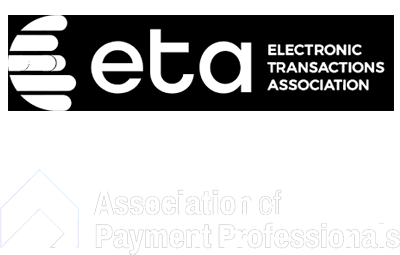02 Nov

Kratom is commonly used for its stimulant and pain-relieving properties. It has traditionally been consumed in Southeast Asia, but its popularity has spread globally in recent years. However, the legal status of kratom varies across different countries and even within various states and municipalities.
Kratom, scientifically known as Mitragyna speciosa, is a tropical evergreen tree native to Southeast Asia. It belongs to the coffee family and has been used for centuries in traditional medicine and cultural practices. The leaves of the kratom tree contain active compounds, including mitragynine and 7-hydroxymitragynine, which interact with opioid receptors in the brain, producing effects similar to opioids.
In Southeast Asia, kratom has been traditionally consumed by chewing the fresh leaves or brewing them into a tea. It has been used for its energy-boosting properties, pain relief, and as a mood enhancer. The cultural significance of kratom in these regions has led to its widespread use and acceptance among the local population.
The Legal Status of Kratom
The legal status of kratom is a contentious issue. In some countries, such as Thailand and Malaysia, kratom is classified as a controlled substance. The governments in these countries have imposed strict regulations on the cultivation, possession, and distribution of kratom. Offenders can face severe penalties, including imprisonment.
On the other hand, in the United States, kratom is subject to federal regulation but remains legal in most states. The U.S. Drug Enforcement Administration (DEA) has considered classifying kratom as a Schedule I controlled substance, which would make it illegal nationwide. However, due to public outcry and advocacy efforts, the DEA withdrew its intent to schedule kratom in 2016. Since then, individual states have taken different approaches to kratom regulation, with some banning it outright, while others have imposed age restrictions or labeling requirements.
It is essential for businesses to thoroughly understand the specific legal requirements in the jurisdictions where they operate. Compliance with local laws and regulations is crucial to avoid legal consequences and maintain a positive reputation within the kratom industry.
The Demand for Kratom Products
Despite the legal complexities, the demand for kratom products continues to grow. Many individuals seek out kratom as an alternative to traditional pain medications or as a recreational substance. The stimulating and pain-relieving effects of kratom make it appealing to those looking for natural remedies.
Kratom has gained traction as a natural remedy for various ailments, including anxiety, depression, and opioid withdrawal symptoms. Some users claim that kratom helps them manage their mental health conditions and reduce reliance on prescription medications. However, it is important to note that scientific research on kratom’s efficacy and safety is still limited, and more studies are needed to validate these claims.
As the demand for kratom increases, so does the variety of kratom products available in the market. Kratom is commonly sold as dried leaves, powdered form, capsules, or extracts. Different strains of kratom, such as Bali, Maeng Da, and Borneo, are known for their unique properties and effects. Consumers can choose the strain and form that best suits their needs and preferences.
Furthermore, the online market for kratom has expanded significantly, allowing consumers to access a wide range of products from the comfort of their homes. Online vendors provide detailed product descriptions, customer reviews, and educational resources to help consumers make informed decisions about their kratom purchases.
In conclusion, kratom is a plant with a rich cultural history and a complex legal landscape. Its popularity continues to rise as people seek alternative remedies and recreational substances. Understanding the legal status and the diverse market demand for kratom is crucial for businesses and consumers alike.
The Challenges of Kratom Credit Card Processing
Kratom credit card processing presents unique challenges for businesses. One significant obstacle is the classification of kratom as a high-risk product. Due to its controversial nature and potential health risks, financial institutions often designate kratom as high-risk, making it difficult for businesses to find a suitable credit card processor.
High-Risk Classification and Its Implications
Being deemed high-risk by financial institutions can have several implications for businesses in the kratom industry. First and foremost, it can be challenging to secure a reliable payment processor. Many traditional processors may refuse to work with high-risk businesses or impose exorbitant fees and restrictive terms. Additionally, high-risk classification can lead to higher chargeback rates, which further complicates the payment processing landscape. But, using a service like www.PayBlox.com will simplify the process. They will match you to payment processors who only work with Kratom businesses.
Navigating the Regulatory Landscape
Aside from high-risk classification, businesses in the kratom industry must navigate a complex regulatory landscape. As laws surrounding kratom continue to evolve, it is crucial for businesses to stay up-to-date with the latest industry regulations and comply with all applicable laws. This includes implementing robust age verification processes and adhering to labeling requirements.
Choosing a Credit Card Processor for Kratom
Despite the challenges, there are credit card processors that specialize in serving high-risk businesses in the kratom industry. As we mentioned above, when selecting a processor, be sure to let PayBlox do all the work so you don’t have to.
Key Features to Look For
First and foremost, it is essential to choose a processor with experience in the high-risk industry. Look for processors that have a proven track record of serving businesses in the kratom space. Additionally, opt for processors that offer secure payment gateways, robust fraud prevention measures, and reliable customer support.
Evaluating Fees and Contract Terms
When evaluating credit card processors, pay close attention to the fees and contract terms. High-risk businesses often face higher processing fees, but it is important to compare rates among different providers to ensure you are getting a competitive deal. Additionally, be cautious of long-term contracts with hefty cancellation fees. Flexibility is key when navigating the ever-changing landscape of credit card processing.
Setting Up Your Kratom Credit Card Processing System
Once you have chosen a credit card processor, setting up your kratom credit card processing system is the next step. Implementing a seamless and secure system is crucial for ensuring a smooth payment experience for your customers.
Step-by-Step Guide to Implementation
Begin by integrating the payment gateway provided by your processor into your website or online store. Next, establish rigorous identity and age verification protocols to ensure compliance with regulatory requirements. Communicate clearly with your processor to ensure seamless integration and address any technical issues that may arise.
Troubleshooting Common Issues
Despite careful planning, issues with credit card processing can still occur. Common issues include declined transactions, chargebacks, and fraud attempts. To mitigate these problems, regularly monitor your payment data, implement effective fraud prevention measures, and promptly address any customer concerns or disputes.
Optimizing Your Kratom Credit Card Processing
Once your kratom credit card processing system is up and running, it is essential to optimize your processes to maximize efficiency and minimize risk.
Best Practices for Fraud Prevention
Fraud prevention should be a top priority for businesses in the kratom industry. Implement robust measures such as address verification, CVV verification, and transaction monitoring. Additionally, stay informed about the latest fraud trends and continuously update your prevention strategies to stay one step ahead of potential fraudsters.
Strategies for Reducing Processing Costs
Processing fees can be a significant expense for businesses. To reduce costs, consider optimizing your transaction volume to benefit from volume-based pricing. Additionally, explore alternative payment methods that may have lower processing fees, such as cryptocurrency or electronic checks.
In conclusion, credit card processing for kratom presents unique challenges for businesses due to the controversial nature and legal complexities surrounding the product. However, with careful planning, selecting the right processor, and implementing robust systems and practices, businesses can navigate the landscape successfully. By understanding the legal requirements, addressing high-risk classification implications, and optimizing their credit card processing systems, businesses can ensure a seamless payment experience for their customers in the kratom market.






